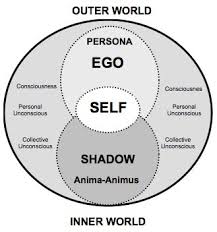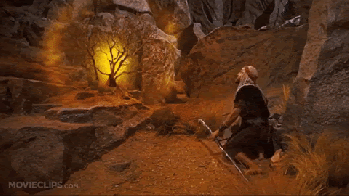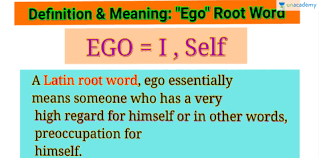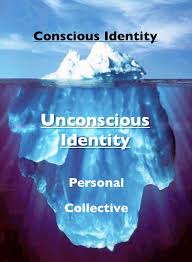
The Ego Papers
Ego vs Pride
Ego is from the Latin and is translated "I"
The Latin phrase "ego sum qui sum" translates to "I am who I am" in English.
It is a statement of self-assertion and self-reliance, and has been used in many different contexts throughout history.
In particular, the phrase is associated with the biblical story of God's revelation to Moses in the Book of Exodus.

PSYCHOANALYSIS: The part of the mind that mediates between the conscious and the unconscious and is responsible for reality testing and a sense of personal identity.
There is a subtle difference between ego and pride though it is often used interchangeably by many. However, these two words are interlinked since they refer to a state of mind of an individual defined in simple terms as the way how a person perceives him/herself. That is how the particular individual thinks, feels and distinguishes him/herself from the rest. Pride, on the other hand,is a feeling one may get after an accomplishment or a success of oneself and someone else. This is the main difference between ego and pride.


Please read all six:


Related Reading

The Oroborus Symbol
Your God is Way Too Small
Connections!
Accountability

Made in the Image of God
What is Man?
The Anguish of Adam
The Conscience
Real Life Now

"Whoever seeks to save his life will lose it,
and whoever loses his life will preserve it." (Luke 17:34)
The term “ego death” is found in modern psychology and is well summarized by Wikipedia.
I prefer “crucified ego” since the human spirit is immortal.
Being “dead to self” does not mean extinction, but unselfish, self-giving behavior.
The opposite is “self-serving.”

Worship in the Image of Me
The Second Commandment for Today

by David Mathis
Executive Editor, desiringGod.org
You shall not make for yourself a carved image, or any likeness. (Exodus 20:4)
We may not fashion our own golden calves today, but the second commandment’s prohibition of “carved images” remains surprisingly relevant to how we approach God in our daily lives and in our weekly corporate worship.
Very little time passed between Israel receiving the “Ten Words” at Mount Sinai and then flamboyantly breaking the second commandment. In Exodus, we find God’s people not only stumbling right out of the gate — grumbling shockingly soon (Exodus 15:24) after their dramatic deliverance, through the Red Sea (Exodus 14–15) — but then, immediately on the heels of receiving God’s law, they replay the fall of humanity by breaking the covenant almost as soon as it was inaugurated.
The first and second “words,” or commandments, of Exodus 20 form a pair: (1) no other gods and (2) no carved images. The first deals with whom we worship (the true God alone), while the second concerns how: not in our own preferred way, nor by adopting the practices of surrounding, unbelieving peoples. Rather, it says, worship God in the ways he has revealed — ways that are often counter cultural and sometimes uncomfortable, both then and today.
How Will They Worship?
After the giving of the ten in Exodus 20:1–21, which all the people heard, Moses receives laws about altars, slaves, restitution, Sabbaths, and festivals in 20:22–23:33. In Exodus 24, the people confirm the covenant, with the shedding of sacrificial blood, confessing, “All that the Lord has spoken we will do, and we will be obedient” (Exodus 24:7). Moses then goes up to the mountain to receive instructions about the tabernacle, its furniture, and the priesthood in Exodus 25–31 — how the nation will worship him. He is gone for forty days.
“God is not the God of our making or imagination, or even of our own discovery.”
In the meantime, Moses’s long absence wears on the nation. They tire of lockdown and are ready to move on with their lives, toward the Promised Land, saying to Aaron, “Up, make us gods who shall go before us. As for this Moses, the man who brought us up out of the land of Egypt, we do not know what has become of him” (Exodus 32:1). Aaron, in perhaps the Bible’s quintessential display of sympathy-gone-wrong, gives in.
However confused the people may have been as to whether they were turning to “other gods” or were just too impatient to wait for God’s instructions for worship (chapters 25–31), Aaron, for his part, is clear that God (Yahweh) is not being replaced. Aaron fashions the golden calf (singular) and declares it to be the God “who brought you up out of the land of Egypt” (Exodus 32:4). He makes a proclamation, “Tomorrow shall be a feast to the Lord” (Exodus 32:5).
In other words, the breach here is not of the first commandment, but the second. Aaron declares “the Lord” (Yahweh) to be the one whom they will worship (confirmed by the retelling in Nehemiah 9:18), but he and the people have chosen their own way, rather than God’s, to worship him. Like the surrounding nations, they will worship (through) a carved image, rather than wait for Yahweh to tell them how to worship.
When Moses returns, hot with anger, he says three times that the people have committed “a great sin” (Exodus 32:21, 30, 31), which he summarizes in the terms of the second commandment: “They have made for themselves . . .” (Exodus 32:31), as in “you shall not make for yourself a carved image” (Exodus 20:4).
Underneath the Great Sin
Why is this such a “great sin” if the people still intend to worship Yahweh (and not “other gods”)? In other words, why isn’t the first commandment enough? Why would God not only provide the who of his people’s worship but also the how? Is there an underlying logic to the second commandment that makes its breaking so severe?
To begin with, the second word speaks to us about the true God. He is not the God of our making or imagination, or even of our own discovery. Rather, he is the God who reveals himself to us not only in his world but in his word. He takes the initiative to speak to his people and reveal the truth about who he is, who we are, why the world exists, and how sin has corrupted it. It would be inconsistent with the nature of God, who speaks and takes initiative, to leave it to his people to dream up (or adopt from unbelieving nations) how to worship him.
The second word, however, also speaks, perhaps surprisingly, about us as humans. Breaking the second commandment is not only rebellion against the Creator but also in dignifying of his human creatures. We might even say the rebellion comes precisely through this self-indignifying.
Image-Making Images
Two key words in Exodus 20:4 are image and likeness: “You shall not make for yourself a carved image, or any likeness.” This is not the first time this pair appears in the Bible — nor are the associations diffuse. This is the language of the creation of man. Image appears in Genesis 1:26–27; 5:3; and 9:6 — “God made man in his own image.” And likeness? Only in Genesis 1:26 and 5:1–3: “When God created man, he made him in the likeness of God.”
What about image and likeness together? Other than Exodus 20:4, we have only Genesis 1 and 5, Deuteronomy 5:8 (which repeats the second commandment), and Deuteronomy 4:16, which forges the connection with the “great sin” of the golden calf: “Beware lest you act corruptly by making a carved image for yourselves, in the form of any figure, the likeness of male or female.”
In other words, the connections are striking between humans being “made in God’s image” and the second commandment. We will not deeply understand the second commandment without recalling the creation of man in God’s image and likeness. And in making the link, we see that to break the second commandment is not only to reject the revealing, initiating nature of God, but also to turn our own selves upside down.
“God made man in his image to display, reflect, and visibly represent the invisible God in his created world.”
God made man in his image to display, reflect, and visibly represent the invisible God in his created world. Yet the very nature of sin is that his creatures rejected this high calling by instead seeking to “make for themselves” an image of God (Romans 1:22–23). What was so tragically wrong about the golden calf was not that the invisible God does not choose to manifest himself in images in the world but that his people are “made in his image.” To make our own images of God for worship is to reject our calling and dignity as his imagers. They made an image for themselves instead of embracing that they themselves were made in God’s image.
Holy, Zealous Husband
Fitting as it would be for God to end it all then and there — whether at the eating of the forbidden fruit or the making of the forbidden image — he is merciful and gracious. Not only is the breaking of the second commandment a “great sin,” but also, right there in Exodus 20:4–6 is a stunning display of God’s heart for his chosen people. He grounds his “second word” like this: “for I the Lord your God am a jealous God.”
Jealous is a tricky word in English. It may be the best equivalent of the Hebrew, but we typically hear jealousy with negative connotations. Zeal might help. The Westminster Larger Catechism speaks of the second commandment as “his fervent zeal for his own worship.” Still, zeal alone doesn’t imply the holy jealousy of a loving husband, whose righteous and exclusive desire for his covenant bride is no mark of fault. In fact, its absence would be a fault in him.
The second word continues: “. . . visiting the iniquity of the fathers on the children to the third and the fourth generation of those who hate me, but showing steadfast love to thousands of those who love me and keep my commandments” (Exodus 20:5–6). Yahweh is righteous and just. He will not sweep sin, indeed hatred of him, under the rug (and to make a carved image is to hate God). Yet, to worship him as he has revealed is to love him.
Don’t miss the arresting asymmetry: four generations versus thousands. Four generations of repercussions for “those who hate me,” but steadfast love to thousands of “those who love me and keep my commandments.” The jealous God is a God of profound and resilient love.
Image to Come
Yet clearly a tension remains. How will this divine husband, in his holy jealousy, show steadfast love to a covenant bride who is so manifestly and deeply sinful, without compromising his justice? This presses us deeper still to the reality, at bottom, that the second commandment was protecting.
We now know on this side of the cross and resurrection that while humanity was made in God’s image, Christ himself is God’s image. The apostle Paul makes the reality unmistakable. He says of Christ, “He is the image of the invisible God” (Colossians 1:15), and speaks of “Christ, who is the image of God” (2 Corinthians 4:4). For those who have been reconciled in Christ to the true God, we are restored to our great calling to reflect God in his world as we are “conformed to the image of his Son” (Romans 8:29; also 1 Corinthians 15:49; Colossians 3:10).
And Christ, as God’s preeminent visible image, is not only the mold for our restored destiny but also the one through whom, and in whom, we worship God. Our looking to him in worship is also the means of our renewal: “Beholding the glory of the Lord, [we] are being transformed into the same image from one degree of glory to another” (2 Corinthians 3:18).
“While humanity was made in God’s image, Christ himself is God’s image.”
The Ten Words at Sinai were not Yahweh’s final revelation to the world. His climactic word, in the person of his Son, fully God and yet fully man, would wait another fifteen centuries. But during that time, the second commandment would protect the great, singular imaging to come in the incarnation. No, our God is not opposed to images. Indeed, he made us in his image, and sent his Son as his image — and he would have his people be and look to the images of his making, not turn ourselves upside down and make our own.
We might say the incarnation not as much breaks the second commandment as fulfills it. The second commandment, all along, while protecting God’s calling on his people to image him, prepared the way for the invisible God to manifest himself, to make himself visible to us, as one of us, in the person of Christ.
The Commandment Today
None of this means that now, with Christ having come, we carve our own images for worship, or worship however we prefer.
The New Testament is a manual for the nations, for global expansion, minimal in its external requirements for worship. New-covenant worship, with its inner essence and worldwide design, crosses and transcends tribal and ethnic divides, both carefully drawing from and courageously challenging the cultures and forms into which the gospel advances and grows. Without missionary intentionality, we are prone to overlook how subtly we can be tempted to worship God in ways borrowed from unbelievers, or in ways that gratify our own preferences or comforts, rather than in ways that stem from God’s revelation to us in Scripture.
Though not under the old covenant today, the instinct of the second commandment might lead us to ask, as churches, How central has our desire become to make our corporate worship gatherings to be comfortable to nonbelievers, and to ourselves? Do our beliefs and practices not also, in a holy sense, make us, and our world, uncomfortable? Would unbelievers among us reasonables say, “Instead of making me want to become more like them, it looks very much as if they want to become more like me”?
The second commandment also might lead us to ask, Who sets the orienting terms of my life as an act of worship? Is it God, through his word, or how much is it (perhaps almost imperceptibly) the world around me? How much am I inclined to try to make my own meaning (by borrowing it from the world) rather than embracing being made in God’s image, and seeking to live in the high calling of being his, and looking to Jesus, his perfect image?
In other words, the second commandment forces us to ask, again and again, "How central is the word of God in my life and in our worship?"
David Mathis (@davidcmathis) is executive editor for desiringGod.org and pastor at Cities Church in Minneapolis/St. Paul. He is a husband, father of four, and author of Habits of Grace: Enjoying Jesus Through the Spiritual Disciplines.

Del Packett has written two excellent articles on the times we live in today.
Series: 7 Threats in Our Times
#1 The Rise of the Scoffer and the Depraved Mind
#2 The Rise of Homo Deus and Meo Christianity

 What is a Crucified Ego?
What is a Crucified Ego?
We are all damaged goods from conception. Cells in our bodies start to die and begin to be replaced soon after we are born. Much time and effort is spent training us, feeding us, teaching us, investing in our lives, in hopes we are enabled to live “happily ever after,” --and give something back to the next generation. We are also trapped in linear, historical time. We do not all make good choices all of the time. Even at our very best we fall short!
“But now the righteousness of God apart from the law is revealed, being witnessed by the Law and the Prophets, even the righteousness of God, through faith in Jesus Christ, to all and on all who believe. For there is no difference; for all have sinned and fall short of the glory of God, being justified freely by His grace through the redemption that is in Christ Jesus, whom God set forth as a propitiation by His blood, through faith, to demonstrate His righteousness, because in His forbearance God had passed over the sins that were previously committed, to demonstrate at the present time His righteousness, that He might be just and the justifier of the one who has faith in Jesus.” (Romans 3:21-26)
But life is not about you and me and the data deposit we are leaving behind in the record books of human history.
Jesus Christ in you is the Real New You
“He [Jesus] is the image of the invisible God, the firstborn over all creation. For by Him all things were created that are in heaven and that are on earth, visible and invisible, whether thrones or dominions or principalities or powers. All things were created through Him and for Him. And He is before all things, and in Him all things consist. And He is the head of the body, the church, who is the beginning, the firstborn from the dead, that in all things He may have the preeminence.
For it pleased the Father that in Him all the fullness should dwell, and by Him to reconcile all things to Himself, by Him, whether things on earth or things in heaven, having made peace through the blood of His cross.” (Colossians 1:15-20)
Human history is not about the progress and improvement of man and society. Even a small amount of objectivity about life on earth, as given to us in the Bible for instance, should be a wake up call.
The human dilemma is often studied under the heading “Original Sin.” We are far from perfect and badly flawed! We are as selfish as all get out and we only adjust reluctantly to heavenly rule. God’s cosmic consequence engines never shut down. Not only are we all self-referential instead of God-centered in our thinking, we all at times act as if we were gods!

“God stands in the congregation of the mighty;
He judges among the gods.
How long will you judge unjustly,
And show partiality to the wicked?
Selah
Defend the poor and fatherless;
Do justice to the afflicted and needy.
Deliver the poor and needy;
Free them from the hand of the wicked.
They do not know, nor do they understand;
They walk about in darkness;
All the foundations of the earth are unstable.
I said, “You are gods,
And all of you are children of the Most High.
But you shall die like men,
And fall like one of the princes.”
Arise, O God, judge the earth;
For You shall inherit all nations.”
(Psalms 82)

We all need outside help! It is for this reason many become "religious"! (By instinct everyone is religious to some degree.) One extreme is to be a “self-made” person "who worships his creator," --assuming there is no higher power on his side to help or hinder. Some forms of religion destroy individuality altogether insisting that we submit to precepts, guidelines, protocols which enslaved and destroy. None of this nonsense is in the Bible!
Our Creator is an entirely whole (holy) and living Being. We exist solely because He made us very much like Himself and endowed us with considerable freedom of the will. Love from God can be offered to us and even pleaded for, but love can never be coerced or forced on us. If one possible choice is to agree to know and love and serve God, the other choice must be to not agree with the Creator’s offer.
 .
.
Footnote: In the model commonly used in Psychoanalysis, the ego is midway been the conscious mind and the unconscious.
Psychedelic drugs, such as LSD, apparently open "full-throttle" that gate to the unconscious mind. See What LSD did for Me.





Lambert's Main Library
Email Lambert Dolphin
Archive for Newsletters
"If you are very careful,
nothing good
OR bad
will ever happen to you."
Library Annex (900+ new articles since 2018)
Free. Help Thyself. No Charge.

Interviews
Contributions

March 1, 2023. September 10, 2023. September 11, 2023.








 What is a Crucified Ego?
What is a Crucified Ego?

 .
.



